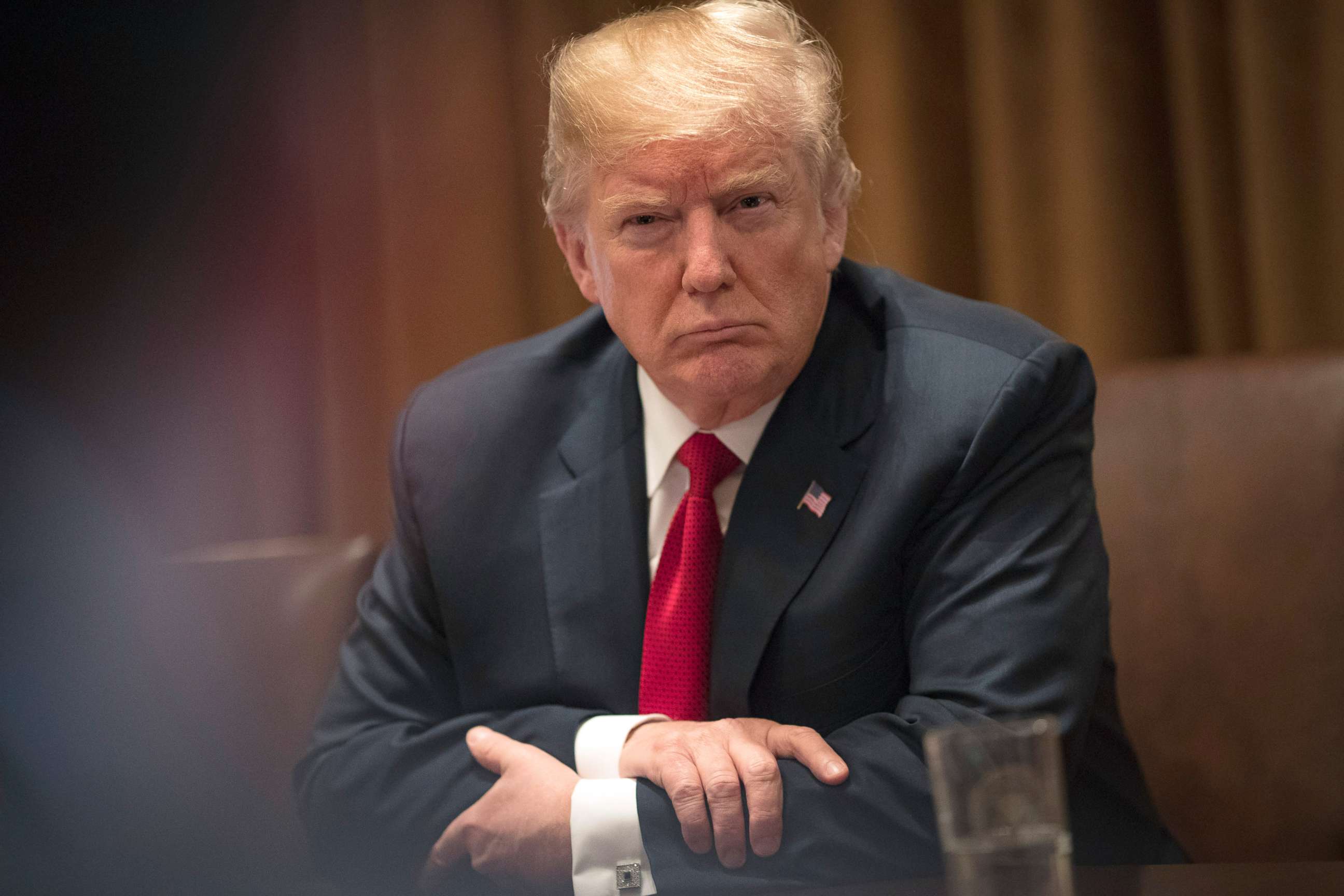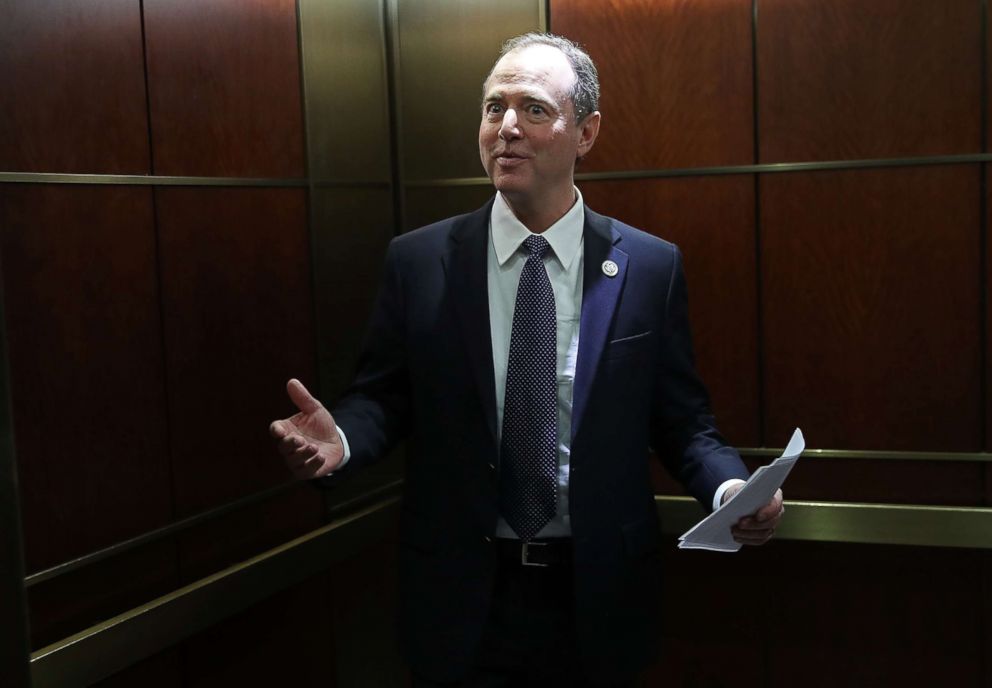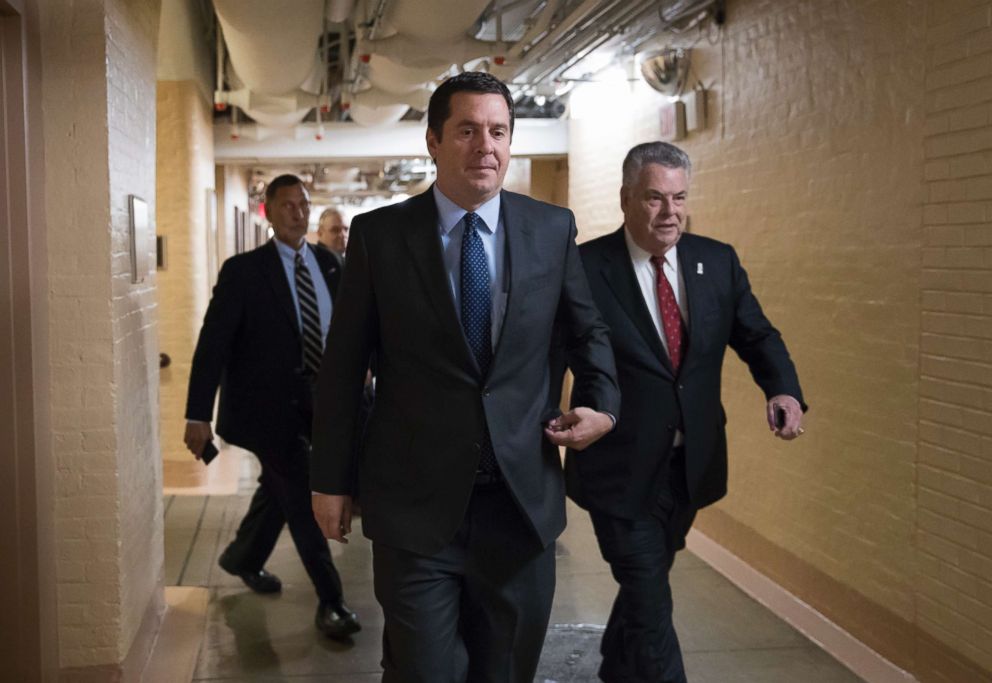Trump accuses Democrats of sending him Russia probe memo they knew he would reject
Democrats meanwhile said they will review possible redactions to memo.
— -- President Donald Trump accused Democrats of deliberately producing a memo relating to the Russia investigation that they knew could not be released publicly.
The president in a tweet Saturday morning referred to a memo by Democratic members of the House Intelligence Committee that responds to a document by Republican committee staff accusing the FBI and Department of Justice of bias and improperly seeking surveillance of former Trump campaign adviser Carter Page.
Although Trump declassified the prior four-page memo by Republicans, which was then released publicly, the White House indicated Friday that he won't at this time declassify the 10-page document by Democrats due to national security concerns.

Trump’s comments echoed those of congressional Republicans accusing Democrats of playing politics with their rebuttal:
“This was written to be redacted,” Rep. Chris Stewart, R-Utah, a member of the committee, told ABC News of the Democratic memo. ”It's much longer, it reveals all sorts of things that we know can't be revealed:”
The leading Democrat on the Intelligence Committee, Rep. Adam Schiff of California, meanwhile commented with apparent sarcasm on the “Real Time with Bill Maher” show that the White House's concerns with the Democratic memo show a "newfound respect for the FBI."

Schiff further commented on Twitter, "After ignoring urging of FBI & DOJ not to release misleading [Republican] memo because it omits material facts, @POTUS now expresses concerns over sharing precisely those facts with public and seeks to send it back to the same Majority that produced the flawed ... memo to begin with."
Democrats "take seriously the concerns of the DOJ and FBI, which is why we both urged the Majority against this course in the first place and why we provided our document" to the intelligence agencies for vetting, Schiff said in a tweeted statement.
With the president's refusal to declassify the Democratic document, Schiff said he and other committee members from his party will review redactions recommended by the FBI and Justice Department and "look forward to conferring" with them to determine how they could move forward toward releasing the document.

That course of action follows an invitation Friday by White House Counsel Don McGahn for the Intelligence Committee to "revise" the memo to address national security concerns. McGahn offered that invitation in a letter to the committee's Republican chair, Devin Nunes, saying that the "Executive Branch stands ready to review any subsequent draft" for release.
"Although the President is inclined to declassify the February 5th Memorandum, because the Memorandum contains numerous properly classified and especially sensitive passages, he is unable to do so at this time," McGahn wrote.




